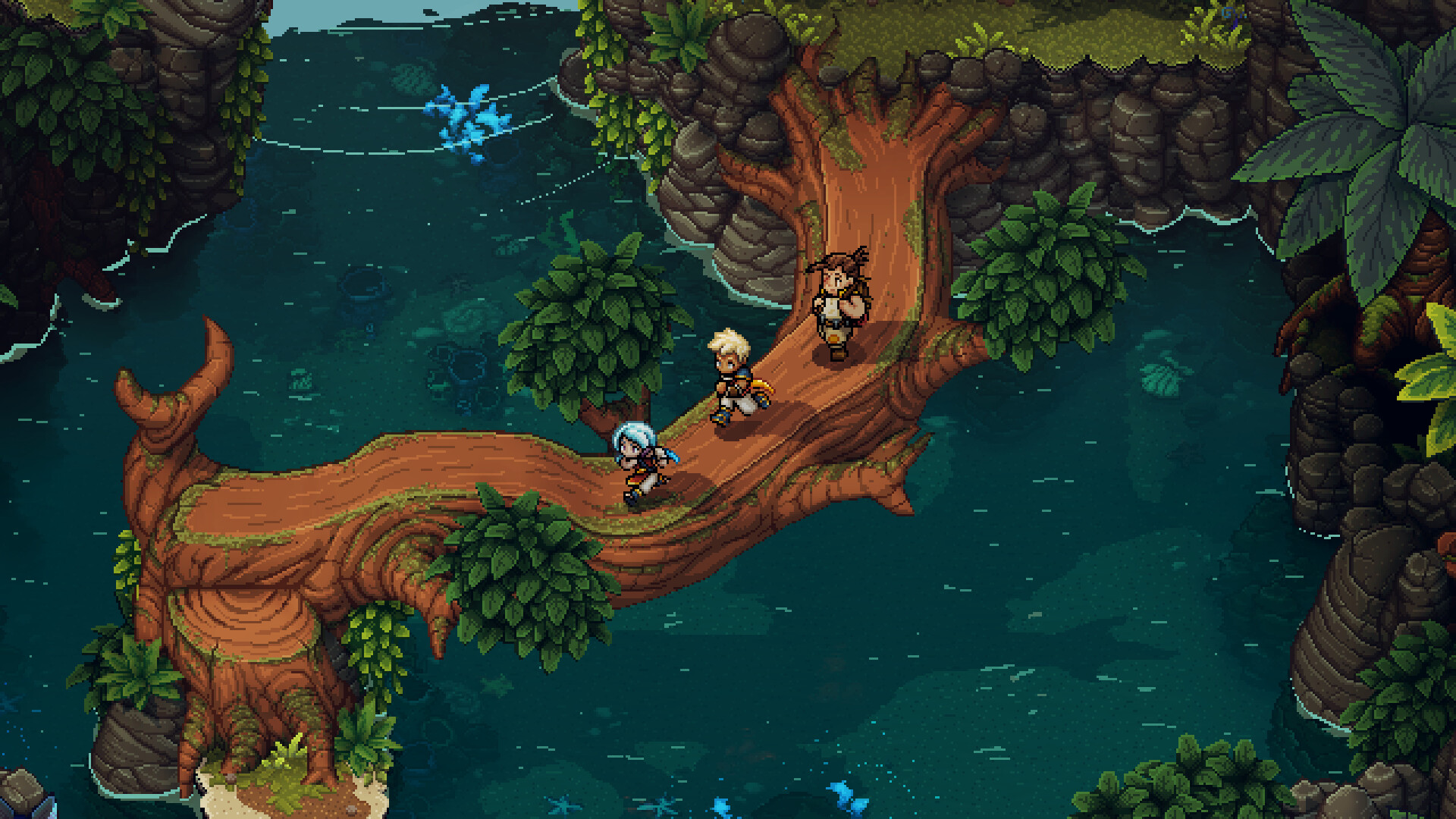
Platform reviewed: PC
Available on: Nintendo Switch, PS5, PS4, Xbox Series X|S, Xbox One, and PC
Release date: August 29, 2023
As the heroes of Sea of Stars, Valere, and Zale, squared up to do battle against a giant worm, a tense beat began to play, before slowly opening into a dramatic score. The way the game’s first boss fight played out followed suit, in a way, with Sea of Stars’ first giant enemy (an enormous worm) smashing the sides of the arena all while the encounter continually escalated. After a fierce back and forth with more than a few close calls, the worm perished in a dramatic and cathartic animation. The battle was won, and I felt great.
This is the magic at the heart of Sea of Stars. This indie RPG from Sabotage Studio faithfully recreates the thrill of classic turn-based battles that define the best JRPGs while elevating itself through the use of modern genre-blending design principles.
Sea of Stars is all about adventure, offering stunning pixel art visuals, diverse locales, and a simple yet engaging plot. However, Sabotage’s latest RPG is more than just an homage to the classic, early installations of Final Fantasy and Dragon Quest. With Sea of Stars, Sabotage has taken a holistic approach to design, making the game world feel broad, grounded, and cohesive.
Sea of Stars’ writing has a cheeky irreverence reminiscent of indie classic Undertale
Background NPCs have dialogue that makes sense and is consistent with the world, while even small towns have areas you can explore if you’re inclined to go searching for hidden treasure. NPCs also have custom animations to help underscore their quirks, reinforced by character ‘voices’, which are captured by contrasting text sounds for different speakers. There’s even a fishing minigame. These little details add up to give Sea of Stars a depth that exceeds the sum of its parts.
What’s more, Sea of Stars’ writing has a modern twist, with some cheeky irreverence reminiscent of indie classic Undertale sprinkled in. Characters might make little nods to the tropes that bind the world together, or, in the case of one particular pirate, almost break the fourth wall entirely. This sense of self-awareness keeps the game fresh, offering Sea of Stars a momentum that carries it through its weaker moments.
A matter of timing
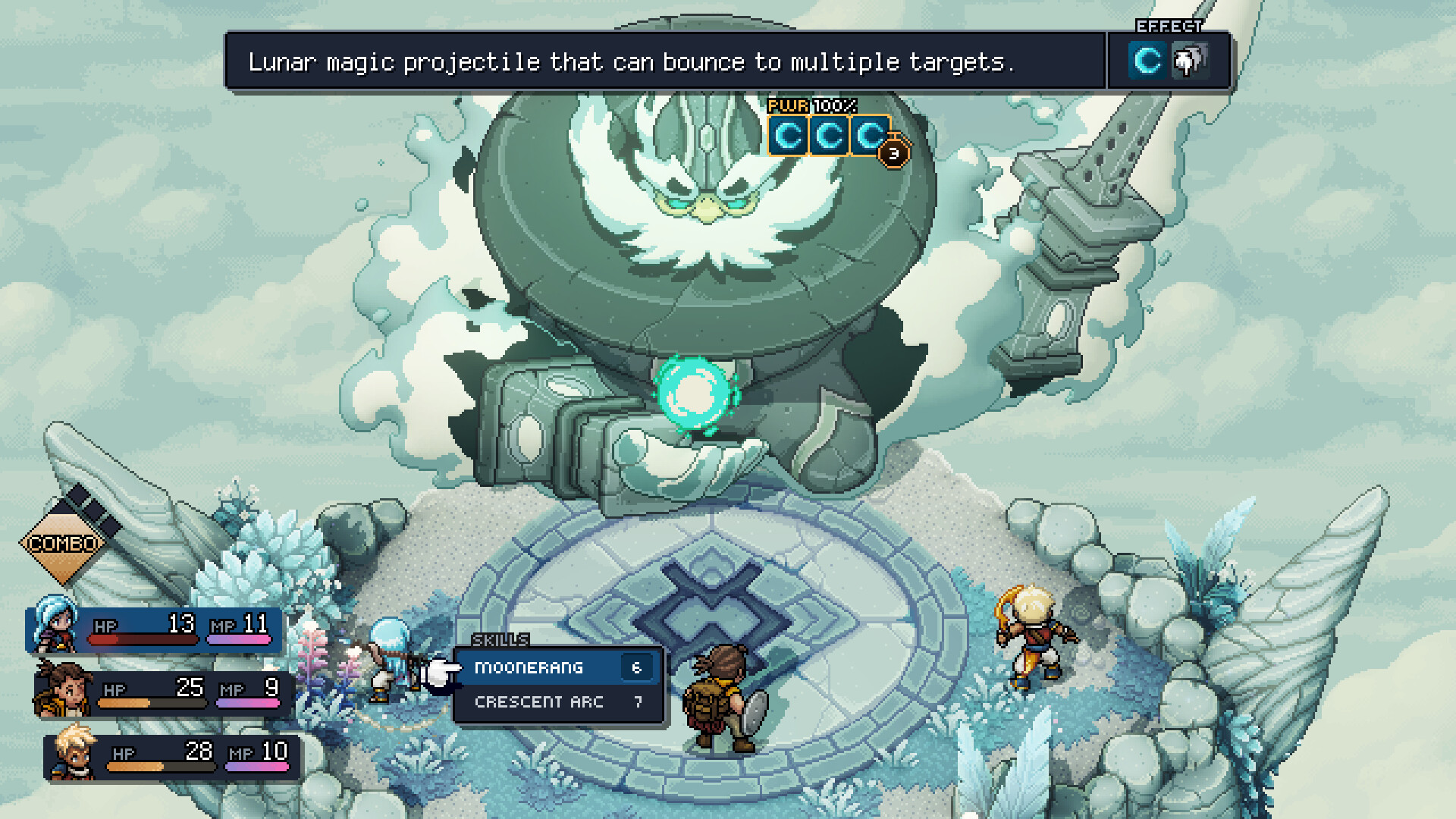
Beneath its pixelated veneer, Sea of Stars is a surprisingly innovative title, daring to conflate genres in its attempt to build something novel. Though combat is turn-based, the game rewards you for some good timing whenever your character attacks or receives damage. Time a button press right, and you’ll get an offensive or defensive bonus. This little quirk adds an element of tension and excitement to even the most routine of battles.
Character skills also follow suit, requiring you to press buttons when prompted, or hold down buttons and release them at the right moment. In isolation, they amount to very simple mini-games, but, in the context of the game’s battles, they enable you to learn and grow alongside the characters. So, as Valere levels up, so too does your ability to get the timing right on her Moonerang attack.
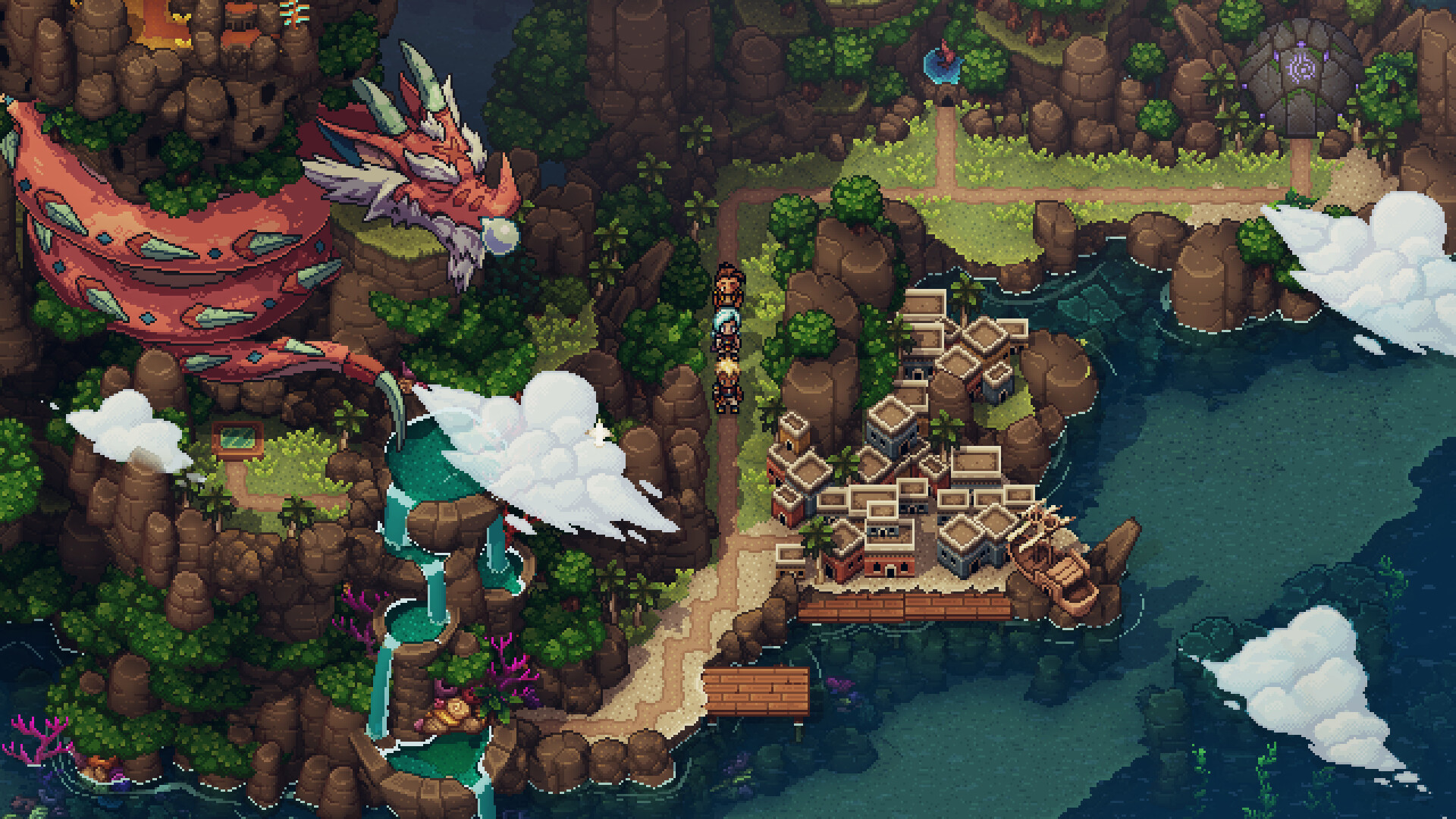
Our heroes descended into a valley, passing a giant dragon called ‘The Sleeper”. Seeing the dozy titan up close brought me into the world of Sea of Stars in a big way, hinting at a whole universe of myth and potential - all while proving that sprites can be just as awe-inspiring as polygons.
Combat in Sea of Stars offers a satisfying depth that is made apparent by the game’s approach to regular attacks. Hit someone with a normal attack and you’ll not only recover MP, your spellcasting resource, but you’ll also generate Live Mana, which can be used to Boost characters when they use skills and attacks in battle. Reminiscent of the excellent action economy in Octopath Traveller 2, boosting makes your character more effective, while also imbuing their basic attacks with the character’s signature element.
This latter is vital for dealing with 'Locks', a system whereby powerful attacks from enemies can be weakened or even prevented by hitting them with the right combination of damage types in a given time window. Sea of Stars transparently counts down to every foe’s next move, allowing you to spend your turn wisely and plan accordingly. In keeping with the best traditions of the turn-based RPG, Sea of Stars’ battles feel like dramatic, fast-paced puzzles, challenging players to find efficient solutions to increasingly complex threats.
That said, a lack of character customization is conspicuous. When characters level up, you can select which stats to increase, but the choice of skills and abilities available to each party member is determined by story beats, rather than player decisions. Though this grants each character a more distinctive set of actions that reinforces their role in the story, it does detract from player agency in a way that had me missing Bravely Default 2’s job system.
Will it blend?
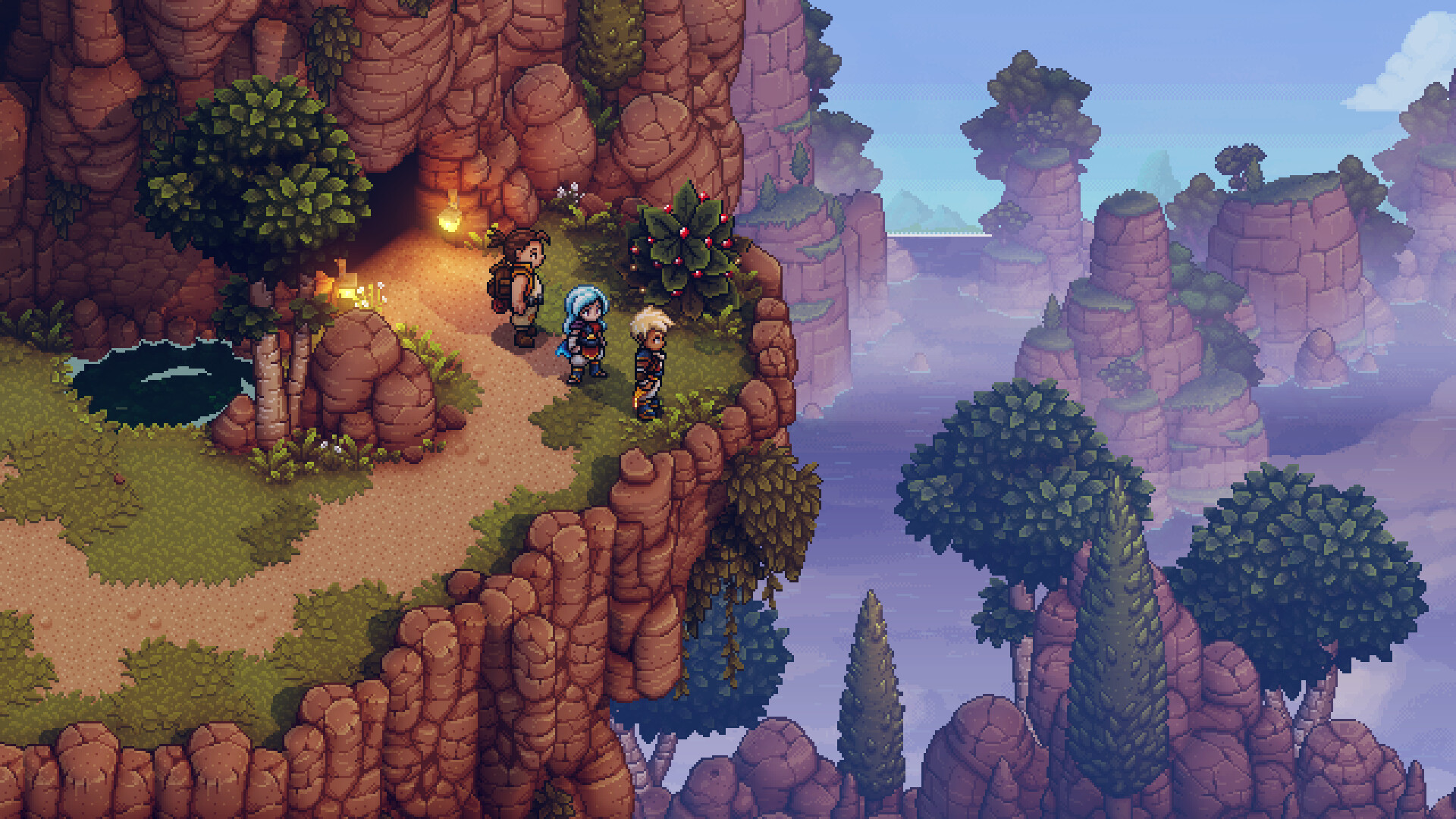
Every other facet of Sea of Stars attempts to blur genre divides, borrowing techniques from across the rich tapestry of modern games to create something novel and refreshing.
Not only does Sea of Stars place a greater emphasis on traversal than most JRPGs, but the game’s dungeons also borrow from the likes of The Legend of Zelda: Tears of the Kingdom by allowing the player to acquire items that let them interact with the world in new and interesting ways. A grappling hook you find in a necromancer’s lair is a particular gem: it not only allows you to solve the dungeon’s own puzzles but also gives you a tool with which to gain the upper hand over enemies in combat.
The story, too, borrows from outside of the established JRPG toolbox. While the narrative’s bare bones follow the traditional “chosen heroes go off to defeat a great evil” mold, Sea of Stars offers twists that alter the flavor just enough to keep it interesting. Early on in the story, serious and superpowered Solstice Warriors Valere and Zale are joined by Garl, a wholesome young man who loves cooking, meeting new people, and looking out for his friends.
Having a non-magical party member early on helps place the epic struggle of the Solstice Warriors in a wider context
Seemingly transplanted from Stardew Valley or Animal Crossing: New Horizons Garl’s wholesomeness adds a much-needed counterbalance to Valere and Zale’s stoic determination. Having a non-magical party member early on helps place the epic struggle of the Solstice Warriors in a wider context by allowing us to view their quests through the eyes of an average Joe, all while humanizing the whole affair with Garl’s good-natured gentleness.
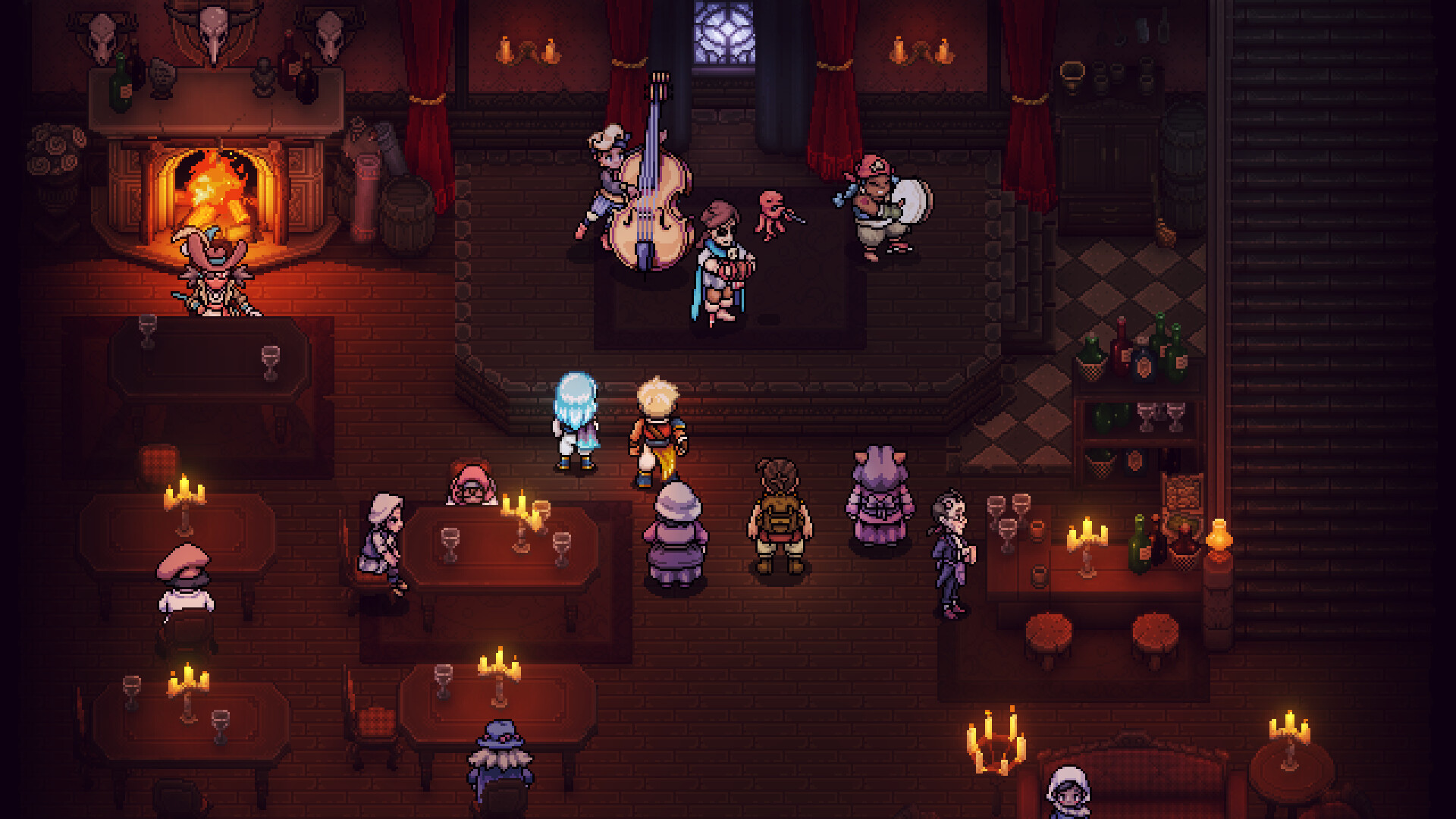
Much like Undertale, Sea of Stars isn’t afraid to draw on tropes when needed, skillfully discarding them once they lose their luster. For instance, at one point in the tale, you encounter a group of charming, fourth-wall-breaking pirates. Though initially presented as a comedic interlude, they swiftly gain depth as they’re transplanted from a wholesome trading port to a tavern on a haunted island. In this new context, their irreverent comedy takes a whole new tone, as they take to the stage to lift the locals’ spirits. What was once played for laughs is now used to make a comparatively serious point about hope in dark places. The grief-ridden patrons of the tavern are distracted from their woes, if only for a moment, by these zany pirates. Sea of Stars is full of these moments of theatrical contrast and is all the stronger for it.
This sense of theater is consistent across the entirety of Sea of Stars. Every story beat is tinged with JRPG melodrama but never feels imprisoned by it, allowing the game to occasionally blur genres and move beyond the established JRPG formula. Though the relatively flat main protagonists and lack of customization options do stifle the game’s flair, Sea of Stars remains an enchanting adventure that will please old-school RPG fans as well as those looking for a cozy adventure.
Accessibility
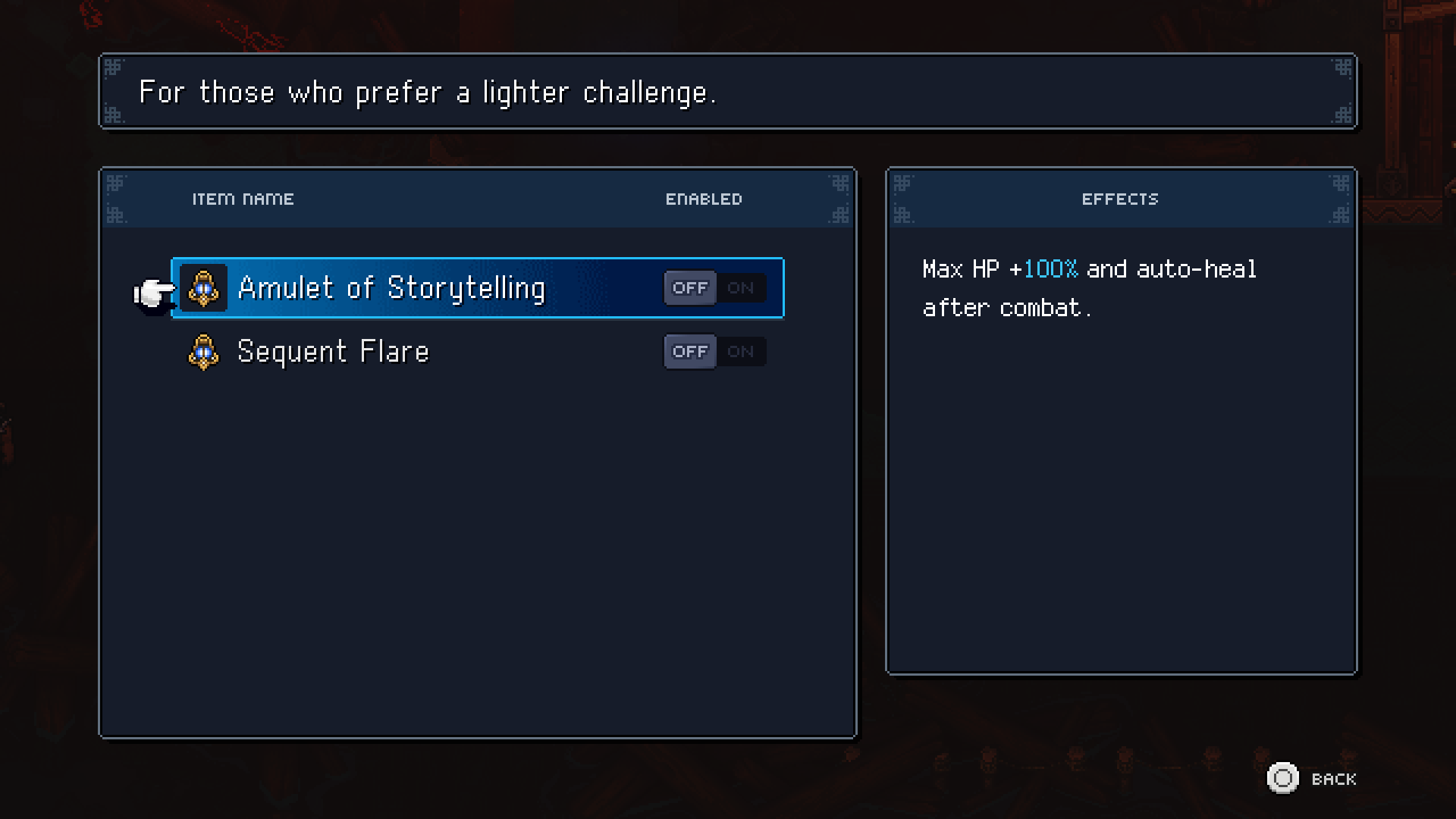
Though Sea of Stars doesn’t offer support for colorblind players or those with other visual impairments, the title does offer numerous ways of tweaking the core game experience to make its combat accessible to a range of players. Much like Final Fantasy 16, Sea of Stars offers players Relics which allows them to customize elements of the game difficulty. Some soften or even remove quick-time elements, while others heal the party between engagements, allowing players to tailor their experience to better suit their preferences.
How we reviewed Sea of Stars
I played 10 hours of Sea of Stars making my way through a range of boss encounters, dungeons, puzzles, and a sizable chunk of the story. I played the game on PC with a Dualsense PS5 controller, which handled smoothly.
During my time with the game, I sampled the fishing mini-game as well as Wheels, an in-universe strategy game reminiscent of Gwent or Triple Triad. I also spent time experimenting with different party compositions and battle strategies.
Looking for more great games? Our list of the best PS5 games and our round-ups of the best Xbox Series X games and best Nintendo Switch games will tell you exactly which titles offer the most bang for your buck.






